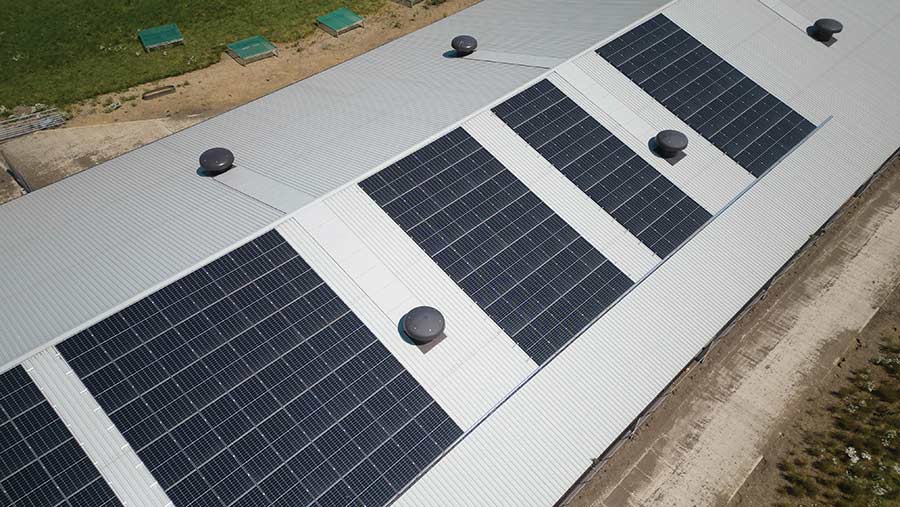Business Clinic: Is battery storage an option on poultry unit?
 © Tim Scrivener
© Tim Scrivener Whether it’s a legal, tax, insurance, management or land issue, Farmers Weekly’s experts can help.
Jamie Baxter, Senior Rural Surveyor at Carter Jonas, advises on energy use and storage for broiler units.
See also: Business Clinic – what should I be doing about carbon markets?
Q: How do I determine the cost effectiveness of battery storage of electricity generated on farm from our solar project, in relation to what I can generate annually and also knowing my annual import consumption?
This decision needs to consider the payback period of battery storage and also their durability and reliability.
Our two broiler units are auto climate controlled in relation to the age of the birds, regardless of time of day, month or year, so it would be possible to re-use stored electricity through the night when the solar photovoltaic (PV) is not generating.
We are limited at present to 11KVA export so it is not worth exporting any electricity. Therefore, battery storage would possibly help, as would maybe more solar PV.
We have a 132kW roof-mounted array working now which was installed in June 2022. Our transformer allows us to import 200KVA.
Our annual consumption before solar was 150,000kW. Any help you can give would be appreciated.
A: Battery storage is an important and useful technology which will undoubtedly support the uptake of renewable energy and the UK’s ongoing transition to a decentralised electricity grid.
It is important to carry out the necessary analysis on a project-by-project basis to establish whether a battery storage system is right for a particular site.
Although it will vary significantly depending on the battery, most are sized to last two-to-four hours.
Batteries which store energy for longer will cost a lot more, affecting their ability to pay back.
The business case for battery storage in most cases is to maximise onsite usage of renewable energy generation and offset any grid consumption, as the question suggests.
There appear to be a couple of options here, either reviewing the existing PV system or looking at a larger system.
In both cases, one of the challenges of the business model, as the questioner suggests, will be in using the battery to shift the solar energy to cover some of the night usage.
Payback challenge
The night rate charged by electricity suppliers is normally lower than the day rate.
Therefore, unless the questioner is charged a flat rate for their electricity supply, the lower cost of the night rate for electricity would provide a challenge in achieving a reasonable payback on batteries.
Assuming this is the case here, then ideally the energy would be stored for when the solar panel output is reduced, but the electricity supplier is charging the day rate.
In this case the benefit of storing any exported energy which is presently spilled to the grid has to be evaluated.
If you have an export meter, you can request this data from the monitoring company or export power purchase agreement provider.
Initially you can try to compare the savings from consuming this additional energy at night over a year in comparison with the capital cost of a small commercial battery to give you a sense of how long it will take to achieve payback.
Factors to account for
However, there are many factors to consider including: battery sizing and resulting cost, DC coupling of batteries to help with grid constraints and battery degradation and payback.
Battery degradation is linked to the number of cycles the battery performs, and many batteries have lifetimes of 10-15 years. Clarity from solution providers on this point is key.
In summary, battery storage can help to maximise onsite renewable energy usage and you can do some initial calculations comparing the amount of exported energy with battery capital costs, but it is a complicated picture.
It is best to speak to a consultant or provider to get to grips with the right solution for your site with the required modelling.
Do you have a question for the panel?
Outline your legal, tax, finance, insurance or farm management question in no more than 350 words and Farmers Weekly will put it to a member of the panel. Please give as much information as possible.
Email your question to FW-Businessclinic@markallengroup.com using the subject line “Business Clinic”.
